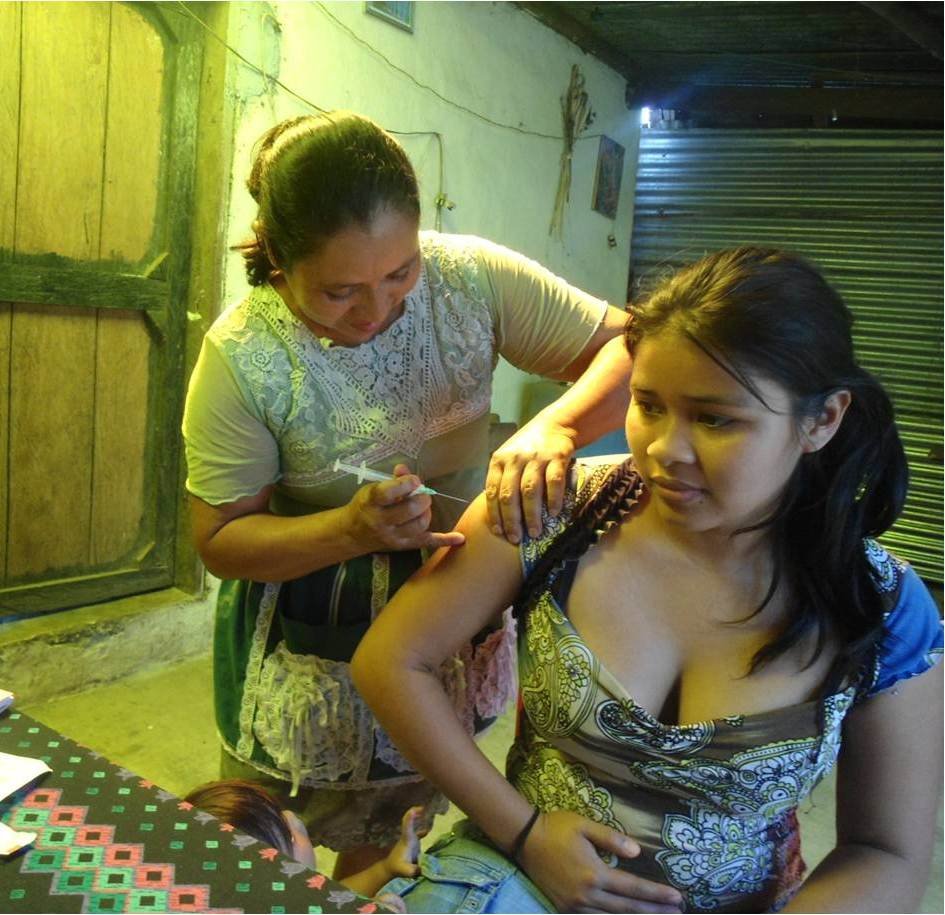By Shaili Zappa | Development Assistant
Guatemala is often known for its beautiful landscapes, travel spots, and rich Mayan history. However, Guatemala is also known for its struggles as a developing country, especially for its extremely high poverty rates. Seventy five percent of the indigenous population in Guatemala lives in poverty. Those who live in extreme poverty in this country live on $2 a day. Along with poverty, malnutrition is widespread. One in every two children under 5 years old is chronically malnourished. This makes Guatemala the country with the highest malnutrition rate in Latin America and the Caribbean, and fourth highest in the world. Chronic malnutrition occurs over time and affects children cognitively, socially, and physically. Chronically malnourished children are very short for their age and their learning capabilities are lower than those of a healthy child. The first 1000 days of a child’s life are crucial in establishing good nutrition because after that, the effects of chronic malnutrition are irreversible.
But what do poverty and malnutrition have to do with family planning? Well, if a family has access to reproductive health services, they will get to choose how many children they have. They will most likely have fewer children than families who do not have access to family planning services. A family with fewer children will be more likely to meet the needs of each child financially. On the other hand, parents who have 11 children, for example, will find it far more challenging to properly feed them all. Many large families in this country do not have enough resources to pay for food, hence their children quickly become malnourished, and so the cycle goes on. To make matters worse, in Guatemala there is nearly a 30% unmet need for family planning. For indigenous women, it is even more challenging; 1 in 3 indigenous women have no access to health and family planning services. The average Guatemalan woman’s ideal number of children is 2, but they have 3.8 on average and 4.6 in indigenous communities. This makes Guatemala the country with the highest fertility rate in Latin America and the Caribbean.
Ana is from San Pablo la Laguna. At 46 years of age, she has been pregnant eight times and currently has five children. Ana is chronically malnourished and weighs less than 100 pounds; her body is not fit for pregnancy, resulting in three pregnancies ending in miscarriage. Ana came to a WINGS clinic held at a partnering hospital in Santiago, extremely pale and clearly anemic. She had never used a contraceptive method before, simply because she could not afford one. Ana came to the hospital in hopes of getting a tubal ligation, even though she had no way of paying for it. Unquestionably, our staff was prepared to waive the operation costs so that Ana could receive the method of her choice. Because her health was quite unstable, it was a very delicate procedure, but Ana’s operation was successful. Even though our medical staff recommended that she stay in the hospital that night, Ana had no one to look after her children, so she went back to her village. WINGS’ staff is still in regular contact with Ana, to make sure that her health is better than the first time we saw her. Ana is now able to focus more on her own health and the health of her family, without being concerned about future unintended pregnancies.
Family planning positively impacts Guatemalans by enabling them to take ownership of their reproductive lives, providing them a path out of the cycle of poverty and malnutrition. Just in 2015, we provided reproductive health education, contraceptive methods, and family planning services to more than 21,310 people in Guatemala. Through WINGS stationary and partner clinics, we performed six times the number of tubal ligations and vasectomies projected for 2015. In the first three months of 2016, we have already provided family planning services to 3221people in Guatemala.
It is through the support of donors like yourself that we can provide family planning services in Guatemala, to break the cycle of poverty and malnutrition. Thank you so much for your continued support and for standing with WINGS in bringing reproductive health services to the most vulnerable in Guatemala.
Project reports on GlobalGiving are posted directly to globalgiving.org by Project Leaders as they are completed, generally every 3-4 months. To protect the integrity of these documents, GlobalGiving does not alter them; therefore you may find some language or formatting issues.
If you donate to this project or have donated to this project, you can receive an email when this project posts a report. You can also subscribe for reports without donating.
Support this important cause by creating a personalized fundraising page.
Start a Fundraiser